Prepared ahead of the United States’ sesquicentennial in July 1926, the people of Poland marked the “sacred” occasion with a unique gift of 111 volumes of signed tributes to America. For the Polish, July 4th deserved celebration for liberty, equality, and justice around the world, not merely in the United States. The Polish people recognized the longstanding friendship that first bonded patriots American and Polish with the contributions of Tadeusz Kosciuszko and Kazimierz Pulaski, both in their early thirties, through our fight for independence but also the more recent deeds of courage and principle that helped liberate Poland after World War I.
Hearing of America’s cause, Kosciuszko and Pulaski separately made the treacherous journey from their homelands in 1776 and 1777 (respectively), knowing firsthand the contempt for freedom held by the nations that surrounded them. Even more so, because of their own resolute devotion to the same ideals their counterparts across the Atlantic were fighting to attain, these two men were undergoing the sentence of exile imposed on them for life. They could never again return to their native lands.
Pulaski, offering everything he could give, would write to General Washington, “I came here, where freedom is being defended, to serve it, and to live or die for it.”
Kosciuszko devoted his talents as an engineer in designing enduring fortifications, most notably the victory at Saratoga and the design of the defenses at West Point, that marveled the commanding General. Becoming a lifelong friend of Thomas Jefferson, Kosciuszko would compose his final will and testament naming Jefferson his executor. Koscuiszko would instruct Jefferson to use his estate for the liberating and educating of slaves to “which may make them good neighbours, good fathers or mothers, husbands or wives, and in their duties as citizens, teaching them to be defenders of their liberty and country, and of the good order of society, and in whatsoever may make them happy and useful.” Koscuiszko invested himself entirely in seeing the ideals of the Declaration come to fruition.
Pulaski transformed America’s cavalry forces into the equal of the best in the world. Encouraged to come to America by Benjamin Franklin, then at Paris, Pulaski would fight alongside Washington at Brandywine, endure Valley Forge, and lead the charge at the Battle of Savannah, where he would receive the wounds that would take his life.
These men embodied the spirit of America and claiming them as our own, we honor them in dozens of location names across this nation. We find these Polish brother-patriots along streets, in towns and villages, on our ships, in our counties and in the millions of Polish immigrants who have come here to help continue the work of liberty and self-government. Yet, the connection between the Polish people and Americans hardly ends there, we returned again to Europe in World War II to help liberate the nation of Pulaski and Kosciuszko.
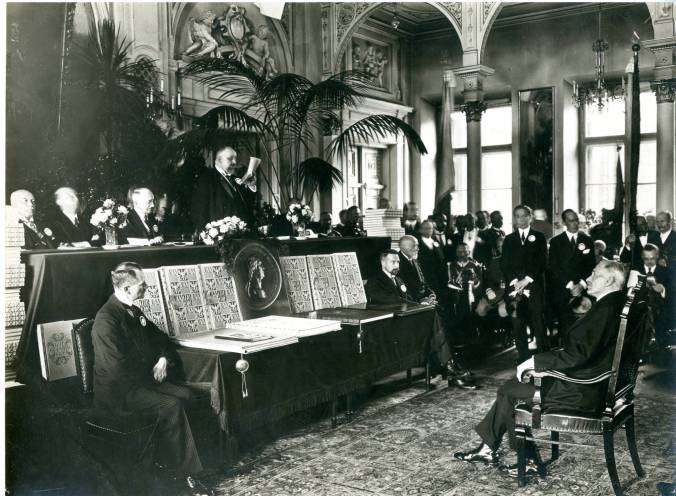
Leopold Kotnowski delivering his speech before the Polish government and U. S. minister to Poland, John B. Stetson, Jr. (seated foreground at right), regarding the tribute project in honor of America’s Sesquicentennial. Notice the volumes rest on display before those gathered. July 4, 1926. Courtesy of the Stetson Family Collection, Stetson University, duPont-Ball Library, Photograph Collection.
While a second conflagration was yet future for the people who lived in 1926, our firm friendship would find reaffirmation and renewal with time. The sentiments gathered that summer of ’26 in an incredible 111-volume tribute to America by the Polish speaks something for all times and all places. It recognizes something that America herself is in danger of forgetting permanently, especially by those who have never known the perspective of generations who could only see the true greatness of her ideals from outside it.
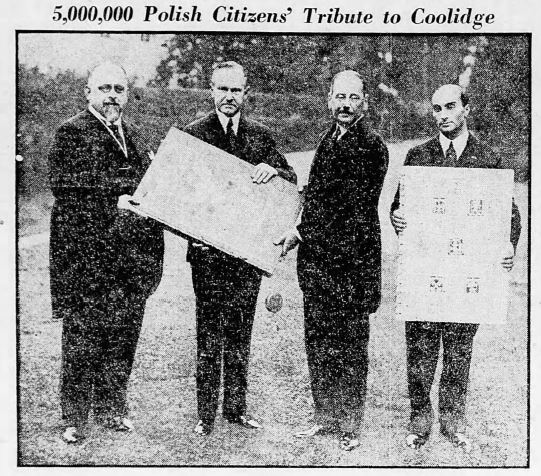
L to R: Leopold Kotnowski, President Coolidge, Professor Iwanowski, and Jan Ciechanowski, October 14, 1926. From the Decatur Herald (IL), October 22, 1926. Courtesy of Newspapers.com.
Presented to President Coolidge on October 14, 1926, after the July celebrations had ended and the historic year was soon to close, a small delegation arrived at the White House at last ready to present the beautiful dedications and decorated offerings of 5.5 million Poles, one-sixth of that nation’s population at the time. From individuals and government institutions, elementary and secondary schools, academies and universities, this record of the sincere and deep love the Polish people have for America is now fully digitized in partnership with the Library of Congress, the Polish Library of Washington, D. C., the American-Polish Chamber of Commerce, Industry in Poland, and the Polish-American Society, completing a project that began in 2005. Receiving them ninety-one years ago, President Coolidge would in turn place these loving gifts in the care of the Library of Congress in November 1926.
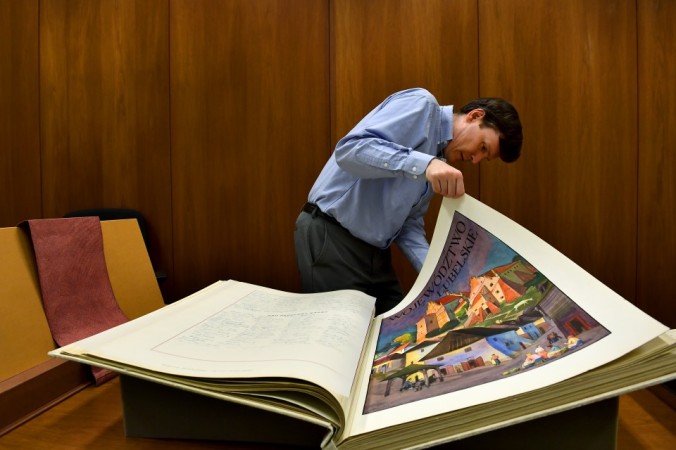
Library of Congress manuscript historian Sahr Conway-Lanz examines one of the 111 volumes presented to President Coolidge and the United States in 1926. Photo by Katherine Frey/The Washington Post.
These ornate and gorgeously assembled books, the first six of which are enormous, make some of the most stirring reminders of what, as Coolidge would say just the year before, “America is and what America has done.” This July 4th, as we enjoy time with family and relish the festivities, take a moment to read the words of some who see our ideals clearer than perhaps even we do ourselves. By doing so, we may find a devotion that honors the sacrifices of patriots from all nations who gave all they had for the principles of the Declaration so that these United States of America would endure.
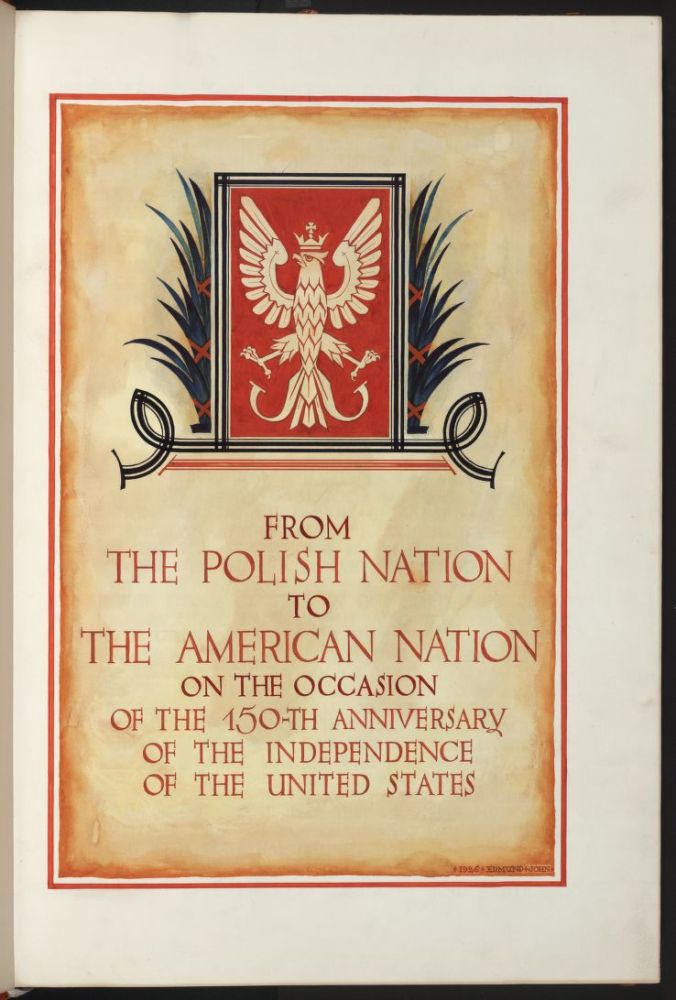
Polish Declarations of Admiration and Friendship for the United States, volume 1. Courtesy of the Library of Congress.
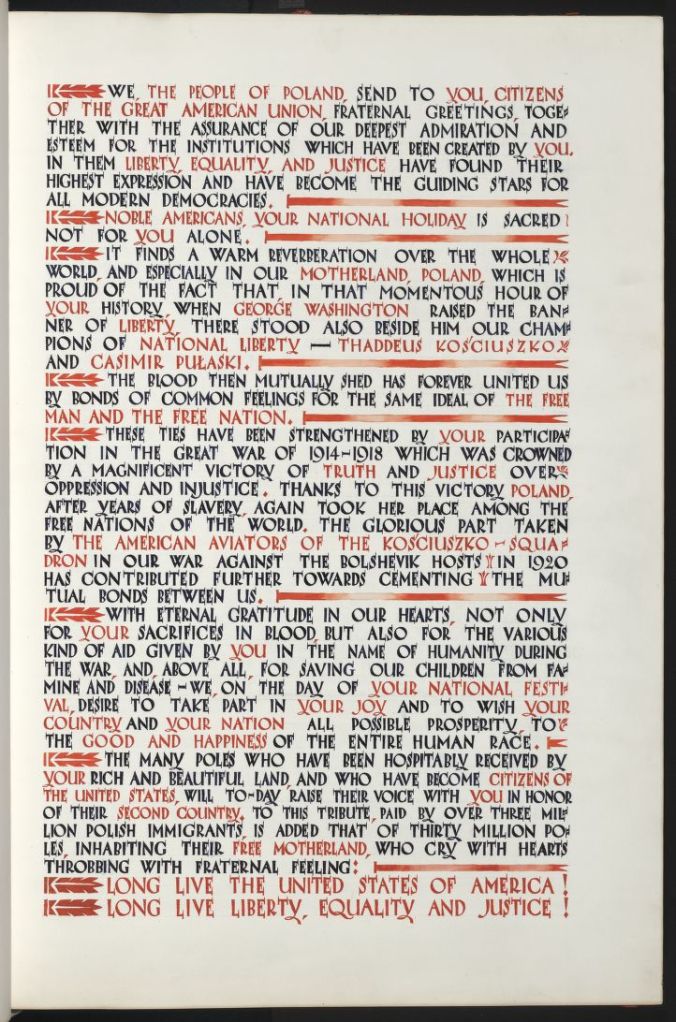
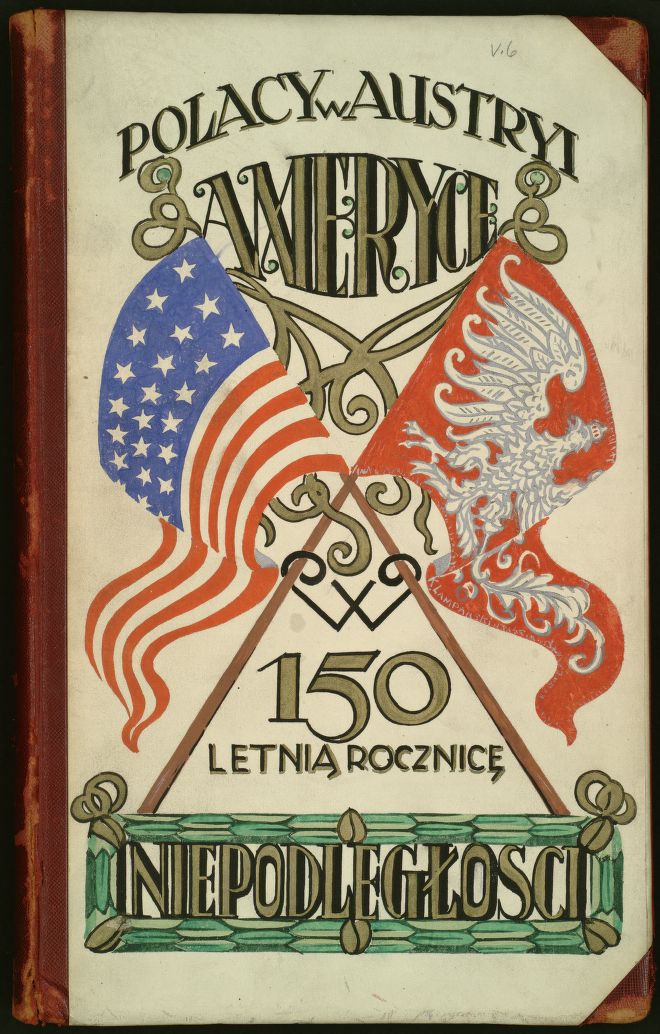
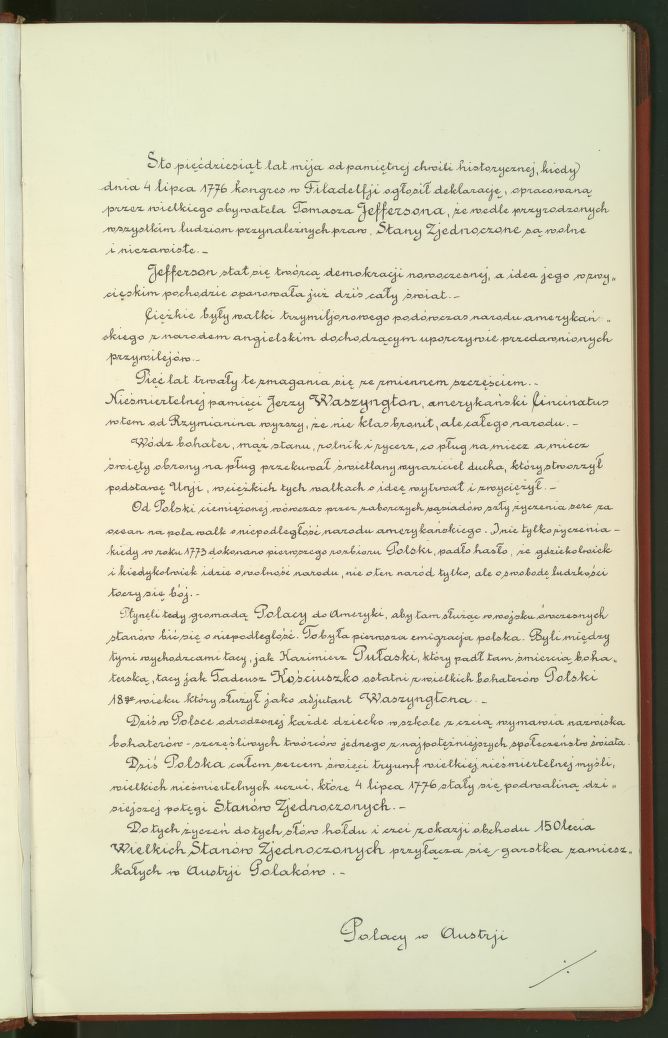
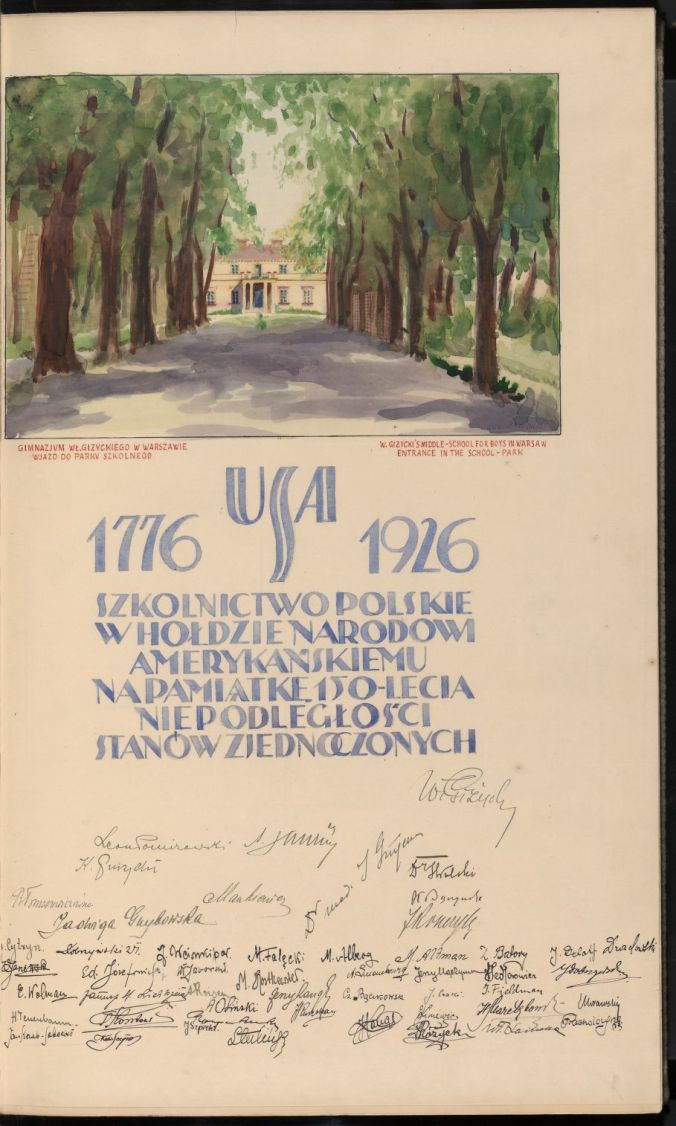
A secondary school in Warsaw, volume 7. Courtesy of the Library of Congress.
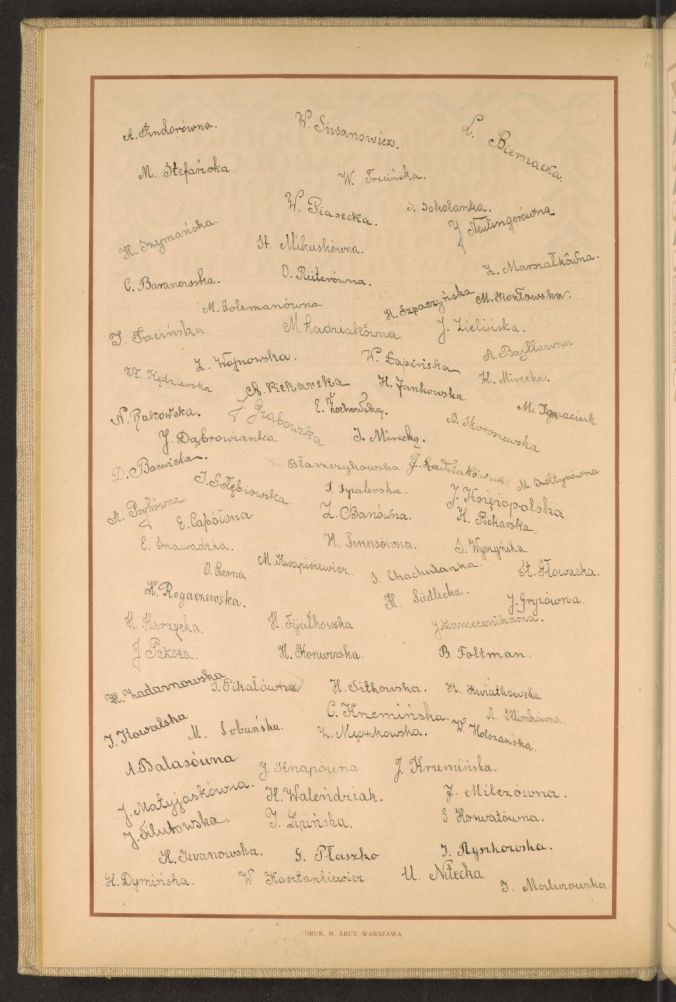
An elementary school, Warsaw. Volume 84. Courtesy of the Library of Congress.
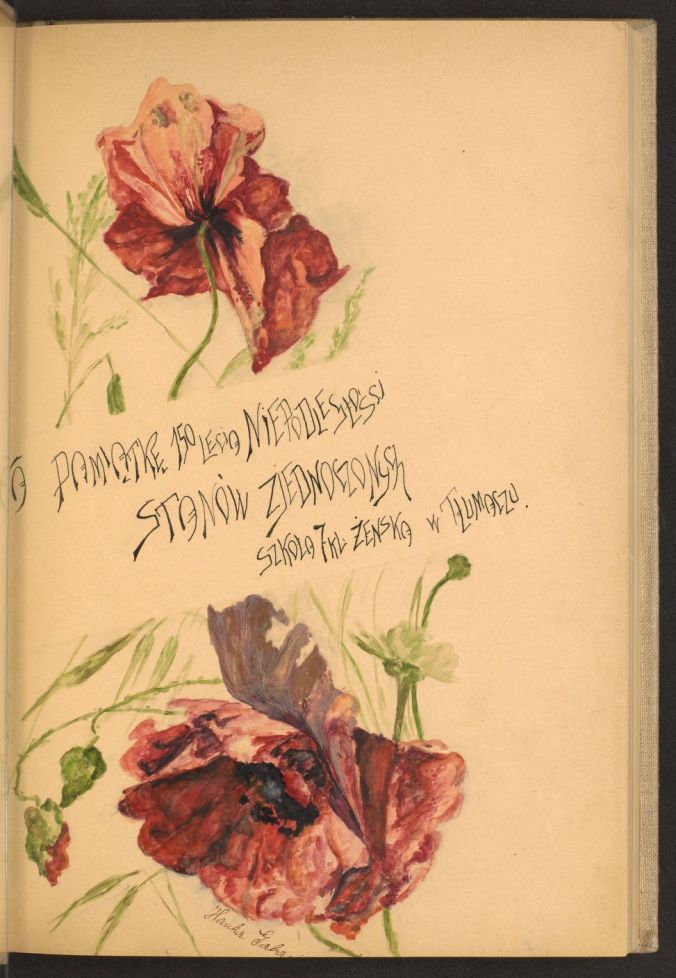
Tlumacz tribute, volume 94. Courtesy of the Library of Congress.
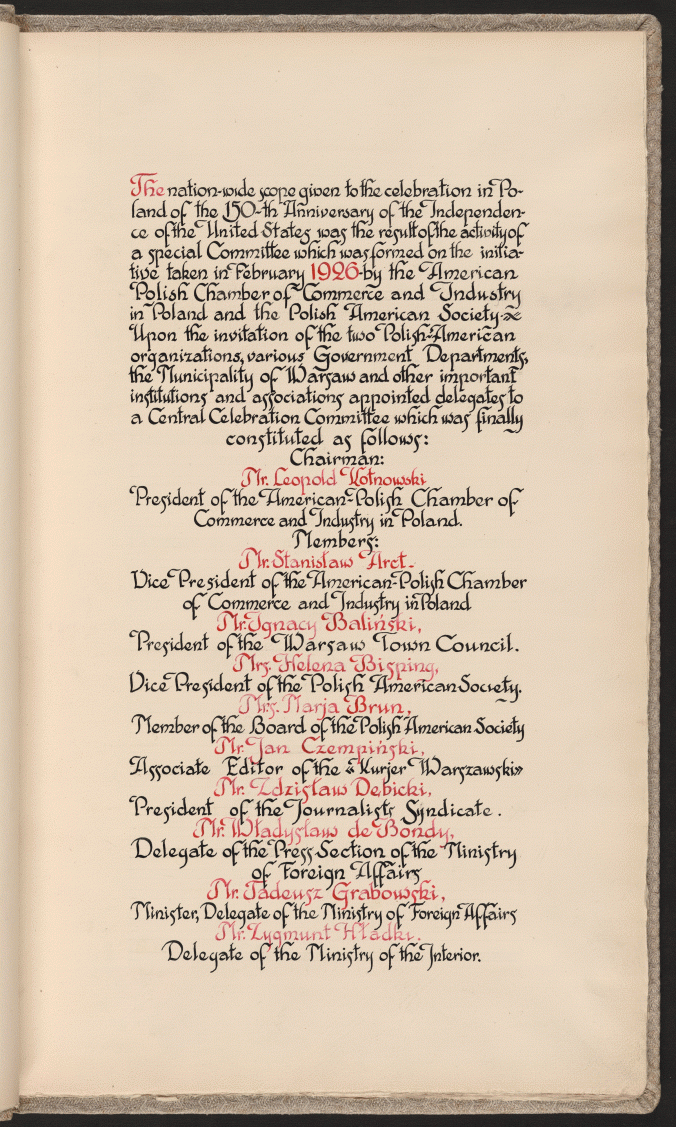
From the Guide, volume 111. Courtesy of the Library of Congress.

